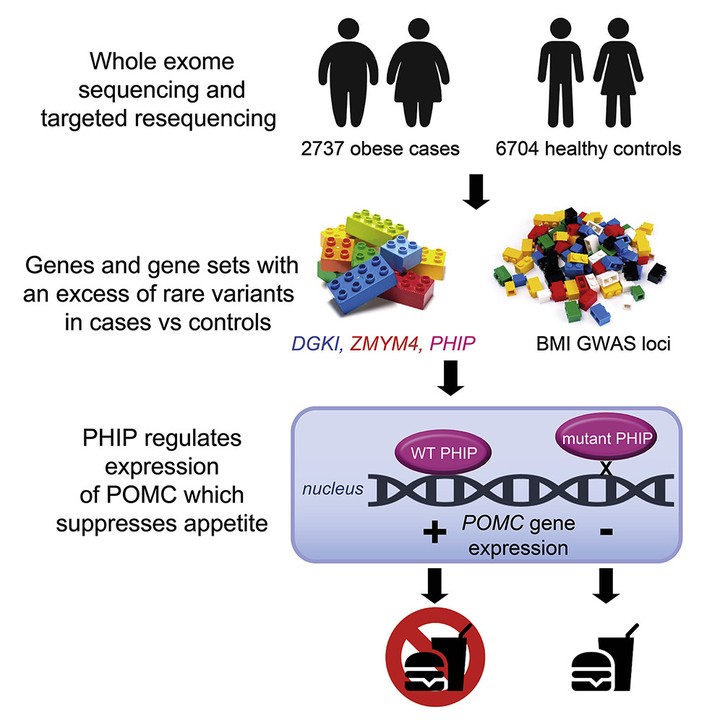Exome Sequencing Identifies Genes and Gene Sets Contributing to Severe Childhood Obesity, Linking PHIP Variants to Repressed POMC Transcription

Abstract
Obesity is genetically heterogeneous with monogenic and complex polygenic forms. Using exome and targeted sequencing in 2,737 severely obese cases and 6,704 controls, we identified three genes (PHIP, DGKI, and ZMYM4) with an excess burden of very rare predicted deleterious variants in cases. In cells, we found that nuclear PHIP (pleckstrin homology domain interacting protein) directly enhances transcription of pro-opiomelanocortin (POMC), a neuropeptide that suppresses appetite. Obesity-associated PHIP variants repressed POMC transcription. Our demonstration that PHIP is involved in human energy homeostasis through transcriptional regulation of central melanocortin signaling has potential diagnostic and therapeutic implications for patients with obesity and developmental delay. Additionally, we found an excess burden of predicted deleterious variants involving genes nearest to loci from obesity genome-wide association studies. Genes and gene sets influencing obesity with variable penetrance provide compelling evidence for a continuum of causality in the genetic architecture of obesity, and explain some of its missing heritability.